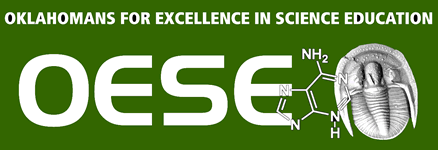OESE Speakers Bureau
The speakers listed below are available for the presentations described in each biographical sketch. Arrangements can be made directly with each person at the e-mail address shown. OESE approves the speakers listed, but is not directly involved in making arrangements for any engagements.
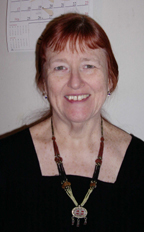
SUSAN COGAN. Susan Cogan is a graphic
designer with the University of Oklahoma Printing Services. She is
the author of the Pocket Darwin, two published novels,
Jubilee and Murder on the Waterfront and numerous
short stories and essays. More to the point she has written
thousands of e-mails explaining evolution to thousands of
creationists around the world.
Topics include:
Only a Theory? Some Common Creationist Arguments
Current State of the Evolution/Creation Controversy
Finding Lucy: The Search for Human Origins
The True Story Behind “Evolutionist Frauds”
Arguments Creationists Should Not Use and Why
The Pocket Darwin in a Nutshell.
Contact Susan Cogan at:
www.coganbooks.net or susan-brassfield@ou.edu.
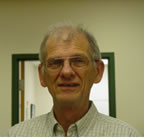 Dr. ANTHONY A. ECHELLE
Dr. ANTHONY A. ECHELLE
Regents Professor and evolutionary systematist in the Department of Zoology at Oklahoma State University. He received the M.S. and Ph.D. degrees from the University of Oklahoma, and taught at Baylor University before coming to OSU. His research focuses on population genetics, molecular systematics, and conservation biology of fishes, primarily of the American Southwest. At OSU, he teaches evolution, human evolution, and biology of fishes, amphibians, and reptiles.
Topics include:
The scientific status of macroevolution
Humans, other apes, and intelligent design versus macroevolution
Contact Dr. Echelle at: anthony.echelle@okstate.edu
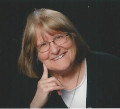 Dr. PEGGY HILL.
Dr. PEGGY HILL.
Associate Professor of Biological Science at the University of Tulsa. She is a native Oklahoman, who is trained as a behavioral/physiological ecologist. She earned her B.S. in Education and M.S. in Natural Science from the University of Tulsa, where her master’s work was in evolutionary ecology. She earned a Ph.D. in Zoology from the University of Oklahoma with a dissertation on reproductive ecology of the prairie mole cricket. She was a secondary teacher for 10 years for Tulsa Public Schools (nine of them at Booker T. Washington High School), and her college teaching has included courses in anatomy, physiology, evolution, environmental ethics and others, for both biologists and non-biologists. Her research on honeybee foraging behavior and on the mating system of the prairie mole cricket has been published in journals such as Animal Behaviour, Naturwissenschaften, Behavioral Ecology, Ethology, the Journal of Orthoptera Research and the Journal of the Kansas Entomological Society. In addition, she has published on lichens and oaks. She is an active member of the Animal Behavior Society, Society of Behavioral Ecologists, Sigma Xi, Society of Integrative and Comparative Biology, the Orthopterists’ Society, the Central States Entomological Society and the Conservation Society of America. She is married with two grown daughters and four grandsons and is an active member of St. Pius X Parish in Tulsa.
Topics include:
Oklahoma: The Field Biologist’s Wonderland
How Science is Done, and Why
Using Analogy as a Tool in Science: Harmonics Across Disciplines
Confronting Anomalies in Science: Honeybee Constancy to Color
Contact Dr. Hill at: peggy-hill@utulsa.edu
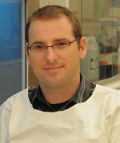
Dr. CECIL M. LEWIS, JR..
Dr. Lewis is an assistant professor in the Department of Anthropology at the University of Oklahoma. He received is PhD in Anthropology at the University of New Mexico which was followed by a National Institutes of Health postdoctoral training fellowship sponsored by University of Michigan’s Medical School and Center for Statistical Genetics. Dr. Lewis is the director of OU’s Molecular Anthropology Laboratories. He studies and teaches human population history and human evolution, including research that involves extracting and analyzing DNA from ancient remains.
Topics include:
Race and Genetics in Health
The Practical Importance of Human Evolution Research
Evolution and the Nature of Science
Human Microbiomes: Human-Microbe Co-evolution
Genetics and the Peopling of the Americas
Contact
Dr. Lewis at: cmlewis@ou.edu
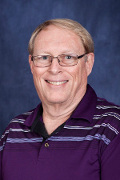
Dr. JOSEPH D. MANESS.
Dr. Maness is currently Associate Professor and Chair of the Department of Biological Sciences at Southwestern Oklahoma State University in Weatherford (although he plans to retire in May 2014). He is currently president of Oklahomans for Science Education and is a member of the Board of Directors. His education includes a BA in Biology from Austin College in Sherman, TX, an MS in Biology from Stephen F. Austin State University in Nacogdoches, TX, and a Ph.D. in Zoology from the University of Oklahoma. Dr. Maness is a herpetologist and physiological ecologist with supporting areas of study in ecology and behavior. He currently is the Coordinator for Biological Concepts, the non-majors biology course at SWOSU. He has over 35 years of experience teaching biological sciences from an evolutionary perspective. Dr. Maness is an active member of The Federated Church (Christian Church (DOC), United Church of Christ, and Presbyterian Church) in Weatherford, teaches the Seekers Adult Sunday School Class, and sings in the Chancel Choir.
Topics include:
Intelligent Discussion about Intelligent Design (This topic uses the AAAS publication, The Evolution Dialogues: Science, Christianity, and the Quest for Understanding and is appropriate for religious organizations.)
Why Scientists Say Evolution is True (This includes an overview of the varieties of evidence supporting evolution within the context of how science develops knowledge)
Other topics as requested.
Contact
Dr. Maness at: joseph.maness@swosu.edu or j.maness@sbcglobal.net or Department of Biological Sciences, Southwestern Oklahoma State University, 100 Campus Drive, Weatherford, OK 73096
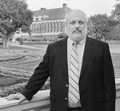 DR. DOREN A. RECKER.
DR. DOREN A. RECKER.
Dr. Recker is Associate Professor and Department Head in the Philosophy Department at Oklahoma State University. He received his P.D. in Philosophy and his M.A. in History of Science at OU, followed by an Andrew Mellon Postdoctoral Fellowship in the History and Philosophy of Science at Johns Hopkins University. His main areas of research include the 17th Century Scientific Revolution, the Darwinian Revolution of the 19th Century, and current Philosophy of Biology and Philosophy of Mind. He was also the co-director of The Summer Paleontology Academy for high school students and Ancient Life in Oklahoma for high school science teachers from 1992-2000. He debated Hugh Ross on creation/evolution at OSU in the early 90s, participated in the debates in Tulsa sponsored by the Tulsa Interfaith Alliance in 2000, and teaches a course on Creation vs. Evolution twice each year. He has presented talks and headed discussions on evolution for the Tulsa Geological Society, the Kansas Geological Society, the Payne County Humanist Society, the Oklahoma Academy of Science, and for several local church and civic groups.
Topics include:
History of the Relationship between Religion and Science
The distinction between Methodological and Metaphysical Naturalism
The nature of Darwinian Evolution as a Unifying Theory
Current Intelligent Design claims (Dembski, Johnson, Behe)
Particular claims within Behe’s Darwin’s Black Box.
Contact Dr. Recker at: drecker@okstate.edu
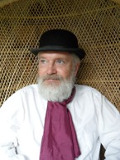 DR. STANLEY A. RICE.
DR. STANLEY A. RICE.
Dr. Rice is a professor in the department of Biological Sciences at Southeastern Oklahoma State University in Durant, where he teaches evolution, botany, biology, and research methods. He is the author of Encyclopedia of Evolution (Facts on File, 2006/2007), Green Planet: How Plants Keep the Earth Alive (Rutgers, 2009), and Life of Earth: Portrait of a Beautiful, Middle-Aged, Stressed-Out World (Prometheus, 2011), as well as articles in educational journals such as American Biology Teacher and scientific journals such as American Journal of Botany. He received his Ph.D. from the University of Illinois in 1987. He has spoken on several occasions in the guise of Charles Darwin (as in the photo; he does not customarily dress like that). More information is available at his website.
Contact Dr. Rice at: SRice@se.edu
